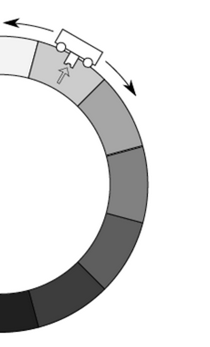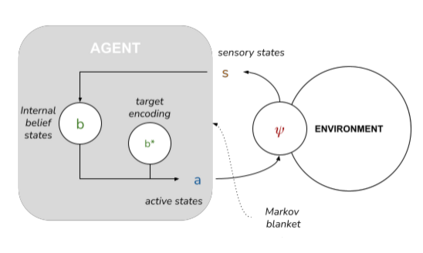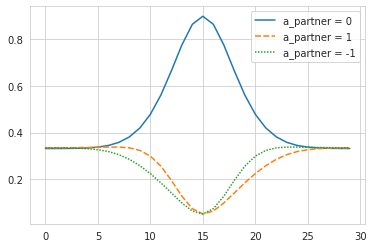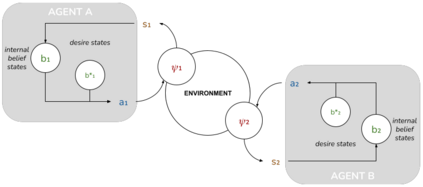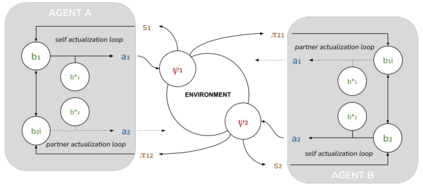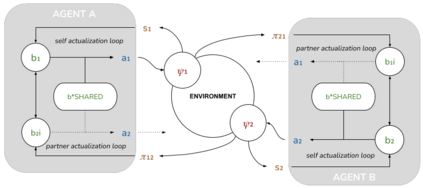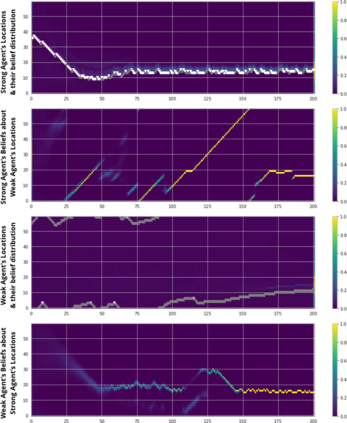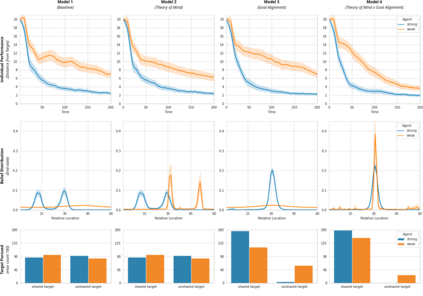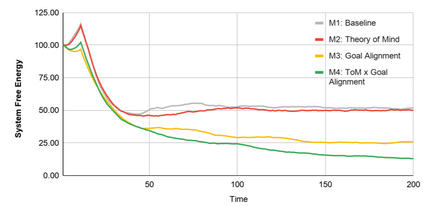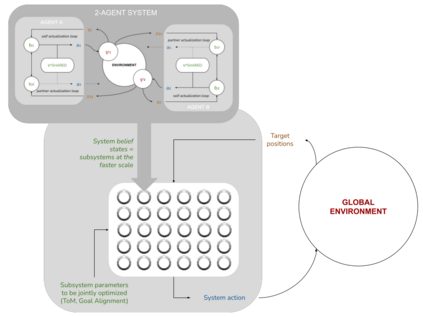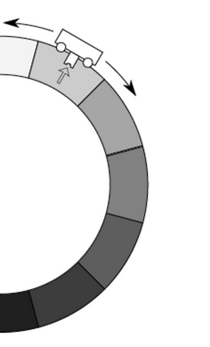To date, formal models of collective intelligence have lacked a plausible mathematical description of the relationship between local-scale interactions between highly autonomous sub-system components (individuals) and global-scale behavior of the composite system (the collective). In this paper we use the Active Inference Formulation (AIF), a framework for explaining the behavior of any non-equilibrium steady state system at any scale, to posit a minimal agent-based model that simulates the relationship between local individual-level interaction and collective intelligence (operationalized as system-level performance). We explore the effects of providing baseline AIF agents (Model 1) with specific cognitive capabilities: Theory of Mind (Model 2); Goal Alignment (Model 3), and Theory of Mind with Goal Alignment (Model 4). These stepwise transitions in sophistication of cognitive ability are motivated by the types of advancements plausibly required for an AIF agent to persist and flourish in an environment populated by other AIF agents, and have also recently been shown to map naturally to canonical steps in human cognitive ability. Illustrative results show that stepwise cognitive transitions increase system performance by providing complementary mechanisms for alignment between agents' local and global optima. Alignment emerges endogenously from the dynamics of interacting AIF agents themselves, rather than being imposed exogenously by incentives to agents' behaviors (contra existing computational models of collective intelligence) or top-down priors for collective behavior (contra existing multiscale simulations of AIF). These results shed light on the types of generic information-theoretic patterns conducive to collective intelligence in human and other complex adaptive systems.
翻译:迄今为止,正式的集体情报模式尚缺乏对高度自主的子系统组成部分(个人)与综合系统(集体)全球规模行为之间当地规模互动关系的合理数学描述。 在本文中,我们使用了“主动推论制定”(AIF)这一框架来解释任何非平衡稳定国家体系的任何规模的行为,以模拟地方个人层面互动和集体情报(作为系统级业绩运作)之间关系的最低代理基模式。我们探讨了提供具有特定认知能力的基线AIF代理(模式1)的影响:Mind的理论(模式2),目标对齐(模式3)和Mind的理论与目标对齐(模式4)。 这些认知能力先进性转变的动机是AIF代理在由其他AIF代理人居住的环境中持续和繁荣发展,而且最近还展示了这些基于人类认知能力方面直观步骤的自然图解。 透析结果显示,通过提供当前机构对当前机构进行自我调节的动态的辅助机制,而不是当前机构对当前机构进行自我调整,从而提高系统对当前机构进行自我调节的动态的自我定位。

